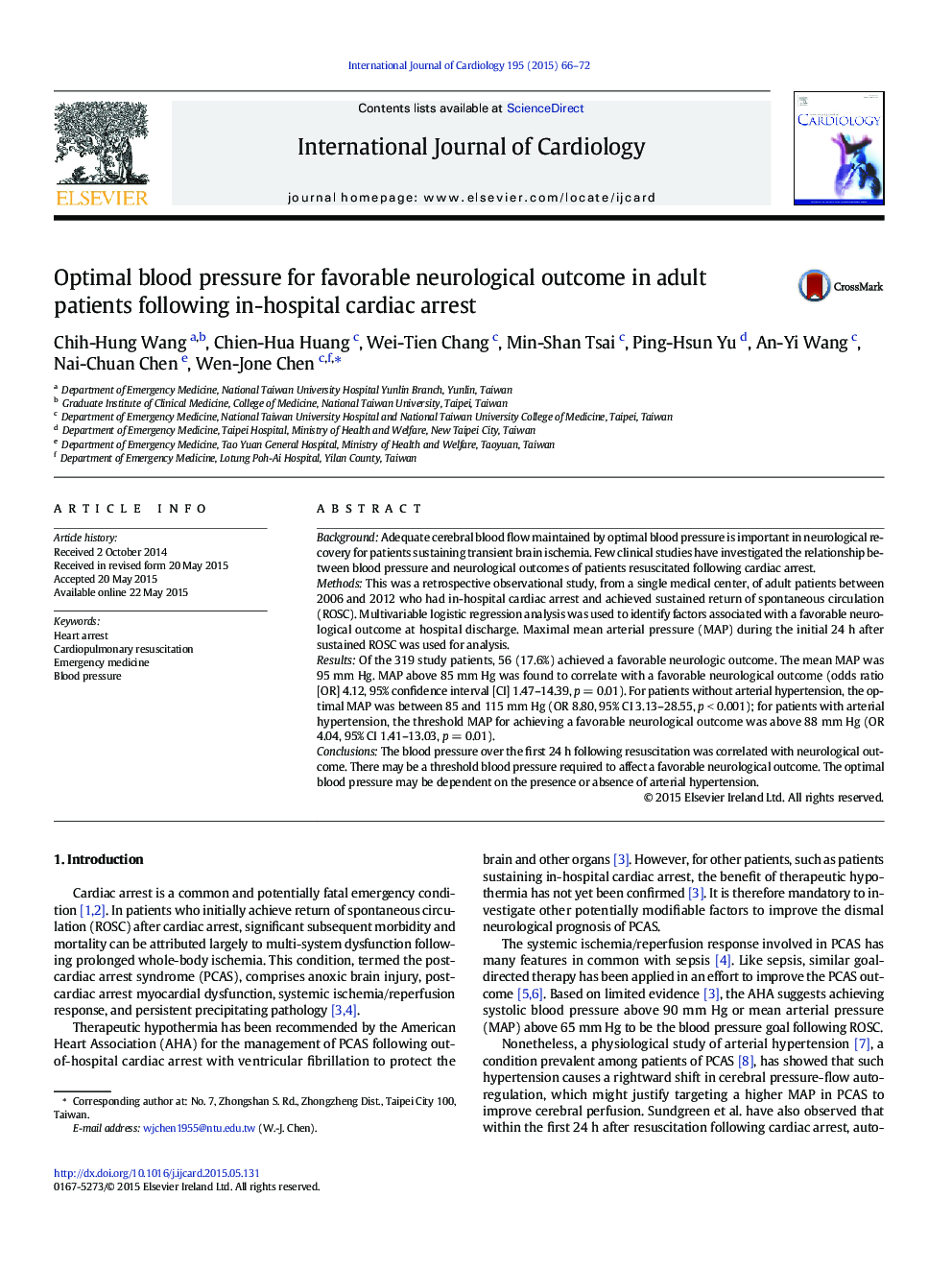| Article ID | Journal | Published Year | Pages | File Type |
|---|---|---|---|---|
| 5966106 | International Journal of Cardiology | 2015 | 7 Pages |
BackgroundAdequate cerebral blood flow maintained by optimal blood pressure is important in neurological recovery for patients sustaining transient brain ischemia. Few clinical studies have investigated the relationship between blood pressure and neurological outcomes of patients resuscitated following cardiac arrest.MethodsThis was a retrospective observational study, from a single medical center, of adult patients between 2006 and 2012 who had in-hospital cardiac arrest and achieved sustained return of spontaneous circulation (ROSC). Multivariable logistic regression analysis was used to identify factors associated with a favorable neurological outcome at hospital discharge. Maximal mean arterial pressure (MAP) during the initial 24 h after sustained ROSC was used for analysis.ResultsOf the 319 study patients, 56 (17.6%) achieved a favorable neurologic outcome. The mean MAP was 95 mm Hg. MAP above 85 mm Hg was found to correlate with a favorable neurological outcome (odds ratio [OR] 4.12, 95% confidence interval [CI] 1.47-14.39, p = 0.01). For patients without arterial hypertension, the optimal MAP was between 85 and 115 mm Hg (OR 8.80, 95% CI 3.13-28.55, p < 0.001); for patients with arterial hypertension, the threshold MAP for achieving a favorable neurological outcome was above 88 mm Hg (OR 4.04, 95% CI 1.41-13.03, p = 0.01).ConclusionsThe blood pressure over the first 24 h following resuscitation was correlated with neurological outcome. There may be a threshold blood pressure required to affect a favorable neurological outcome. The optimal blood pressure may be dependent on the presence or absence of arterial hypertension.
